Six years ago, on February 26, 2014, many thousands of people held a rally outside the building of the Supreme Council of the Autonomous Republic of Crimea, the significance of which will still be appreciated in the modern history of Ukraine.
This opinion is held by a former political prisoner, deputy chairman of the Mejlis of the Crimean Tatar people, MP Akhtem Chiygoz. Our conversation with him is about the real situation in Crimea today, the first item in a strategy for the de-occupation of the peninsula, and about attempts to bribe Chiygoz in the Simferopol pretrial detention center to lure him into taking the side of the new regime in Crimea.
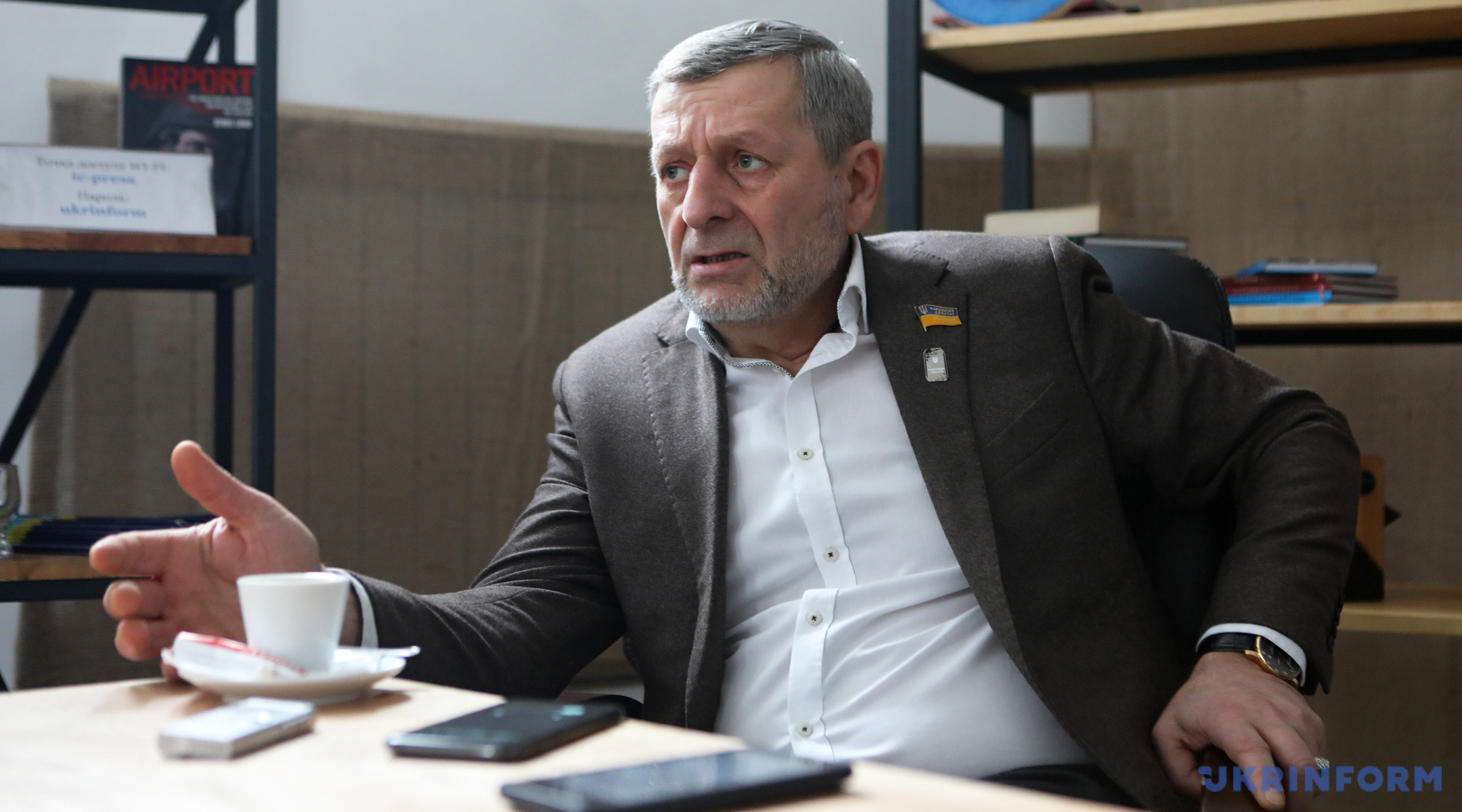
Question: Today some experts in Ukraine call for a "sober and realistic" assessment of the situation in Crimea and advise that people not hope for its return to Ukraine's control in the coming decades. The other day, well-known journalist Vitaliy Portnikov compared Crimea with the former Baltic republics where patriots had to fight for seats in the Communist Party of the Soviet Union to protect their land and preserve their language. Do you share these concerns about Crimea?
Answer: Ukraine should understand that it is obliged to liberate Crimea and to be at the forefront of this process, and then the world will not be able to shut up. Because only Ukraine can do it. And actually, it is the duty of the state to fight for its territory. Therefore, Ukrainian politicians should stop building the illusion that someone else will solve the Crimean issue for them, that it is enough for them to observe the process from a distance, agreeing on something or not. But if any representative of the government or part of society today says that he or she is "tired of the war" and that the problem of Crimea can be "frozen" for a while, then let him or her prepare that all the horrors that befell Crimea and eastern Ukraine will reach Kyiv and Lviv. Because Russia represents a monster that exists at the expense of blood, both in the literal and figurative sense of the word, and the appetites of this monster are growing. Therefore, every day, without forecasts, pessimism and fortune-telling on coffee grounds, every effort must be made to resist this aggression. I have great respect for the opinions of experts and journalists, but what we need now when we look at Crimea is realistic and sober assessments.
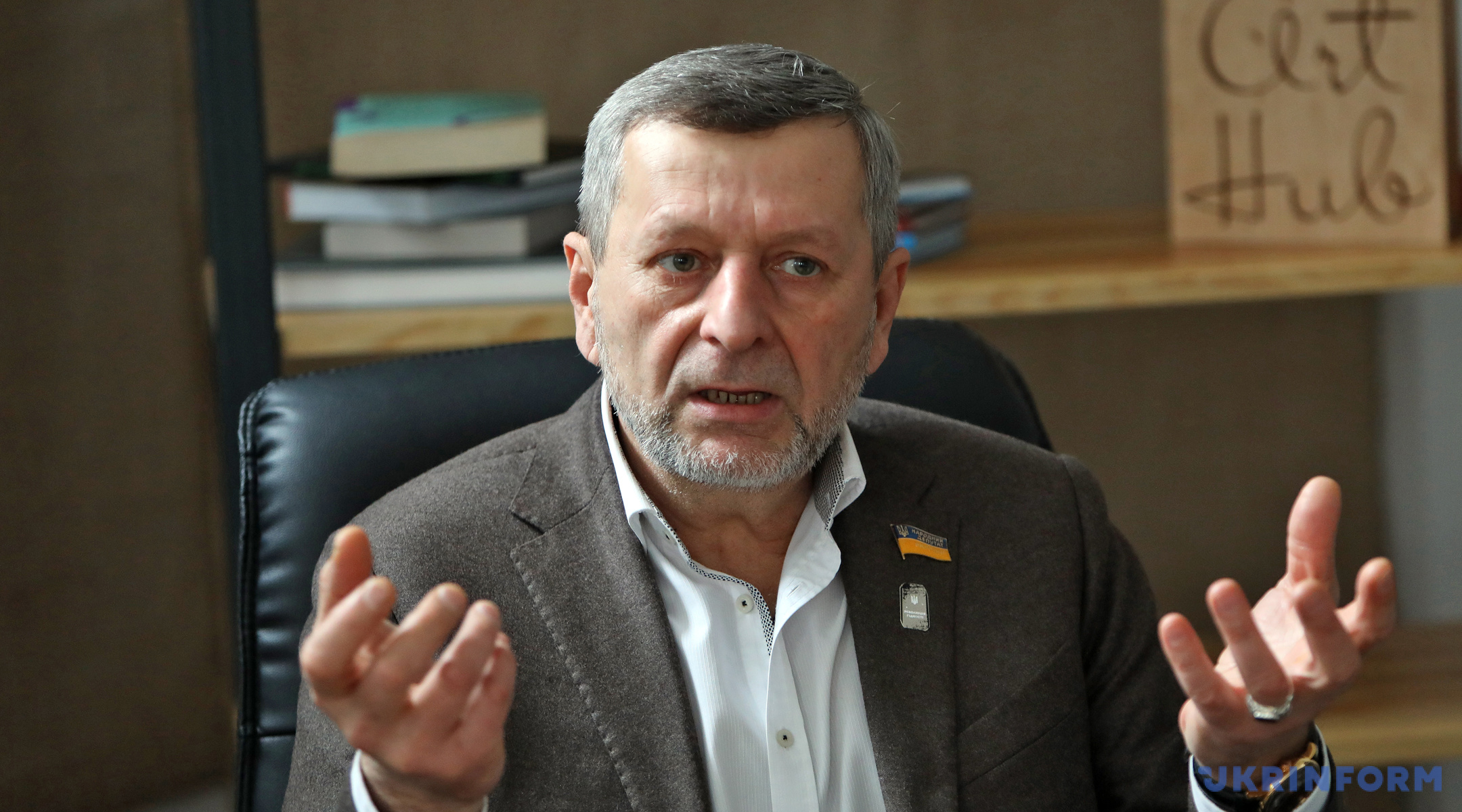
Q: Do you know anything more about the situation in Crimea?
A: Enough to make sober conclusions. Every day I have dozens of phone calls with Crimea and I know the sentiments of people there. In addition, we sometimes underestimate the dynamism of the processes taking place in the world. We already see signs of the fall of Russia, for example, in matters of satisfying imperial ambitions. Therefore, do not tell me about the Baltic states, which had been striving for liberation for 50 years, and the collapse of the Soviet Union, which had lasted for ages. Russia does not cope with the subordination of Ukraine, it does not extend its status as a great power. Blood is pouring, but we see Russia's failures in an attempt to establish itself by the strength of its weapons in foreign territories.
For example, they said in Russia yesterday that it maintains very close friendly relations with Turkey. I never believed that, I thought that it was a temporary, situational relationship. Until now, Turkey has allegedly fought with the Assad regime, and it was understood that the weapons and military instructors there are from Russia. Today we see that the conflict between these countries is moving into an open form. And what will happen to this "friendship" now?
On the other hand, Turkey today has truly sincere intentions of friendship with Ukraine, and we strive for these intentions to become practical and have humanitarian and economic benefits for Ukraine.
Take the Tomos. It is no secret that Dzhemilev's request to Erdogan - to support Ukraine in the issue of the Orthodox Church of Ukraine receiving the Tomos - played a role in solving this issue. Of course, Putin is enraged by this situation, as well as the supply of arms from Turkey. And the most important thing is that Turkey always emphasizes that it does not recognize Russia's illegal annexation of Crimea.
Therefore, I urge analysts to use not only analogies from history, but to pay more attention to the real facts of today. I urge them to talk with people from Crimea, as we do with our colleagues. Firstly, it is very important to maintain the spirit of resistance of our citizens in Crimea. The second aspect is the aggravation for Russia of the issues of maintaining Crimea. And thirdly, our entire politics needs to be built with a focus on the liberation of the occupied Crimea.
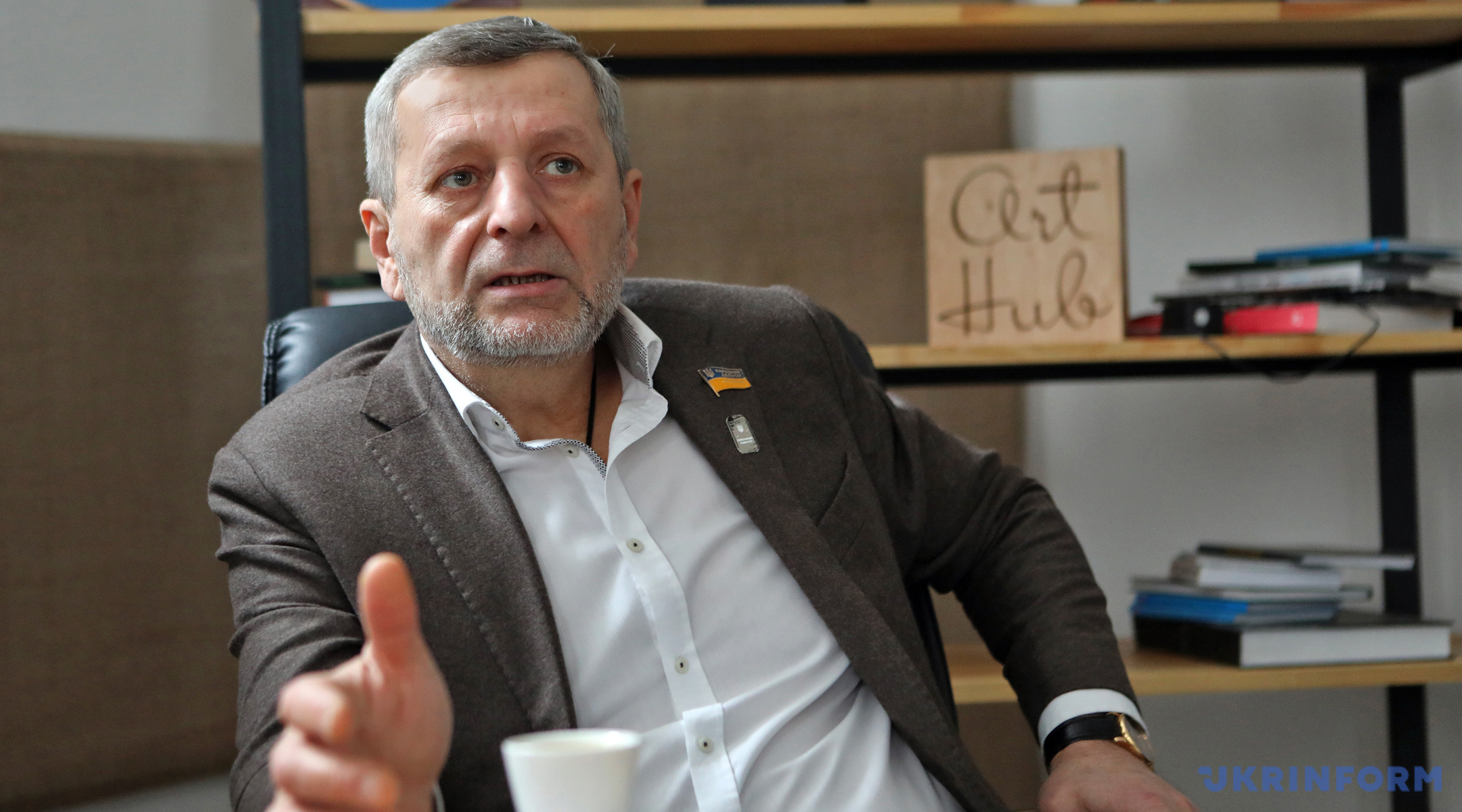
Q: This is already similar to a strategy for the de-occupation of Crimea. What place should the arms issue occupy in the strategy?
A: One of the first ones. But when we say that Crimea must be liberated by force of arms, this does not mean that we will go there in tanks. But we need to have tanks.
Q: Do you consider it appropriate to spend money on tanks if Ukraine excludes the military path of the de-occupation of Crimea?
A: I say once again that the military path and the strengthening of the military positions of the state are not the same things. Weapons as a show of strength are one of the most powerful tools for liberating Crimea. A state that demonstrates its modern weapons may cool the ardor of the enemy. For example, American Javelins cooled Russia's aggressive intentions. At the same time, Ukrainian weapons raise the spirits of citizens in the occupied territories and show our European partners that we will never retreat from our own territory. This is the position of the state, supported by determination and strength.
Q: Are Ukrainian sailors captured in the Kerch Strait also a demonstration of determination and strength?
A: Yes, they were shot at, they were taken prisoner because there is a war going on. But look, the whole of Crimea, despite brutal repressions, undertook to defend the Ukrainian military, which means to help Ukraine. Our activists arrived even at the Lefortovo prison. This mobilized our entire society in Crimea and gave a signal to Ukraine that they are waiting for it and supporting it, despite the fifth year of the occupation of Crimea. And this mobilized Ukraine? Why did international courts make decisions in favor of Ukraine? Why did the Hague Tribunal decide that Russia should immediately release Ukrainian prisoners of war? And now the command of the headquarters of naval sailors says that they will no longer go to the Sea of Azov. But who will go to the Sea of Azov instead of you? Turkey or NATO? Today, our government, unfortunately, does not demonstrate the necessary decisiveness, citing the fact that the highest value of the state is human life. But in any nation and in any religion the highest value is HOW a person has lived his life.
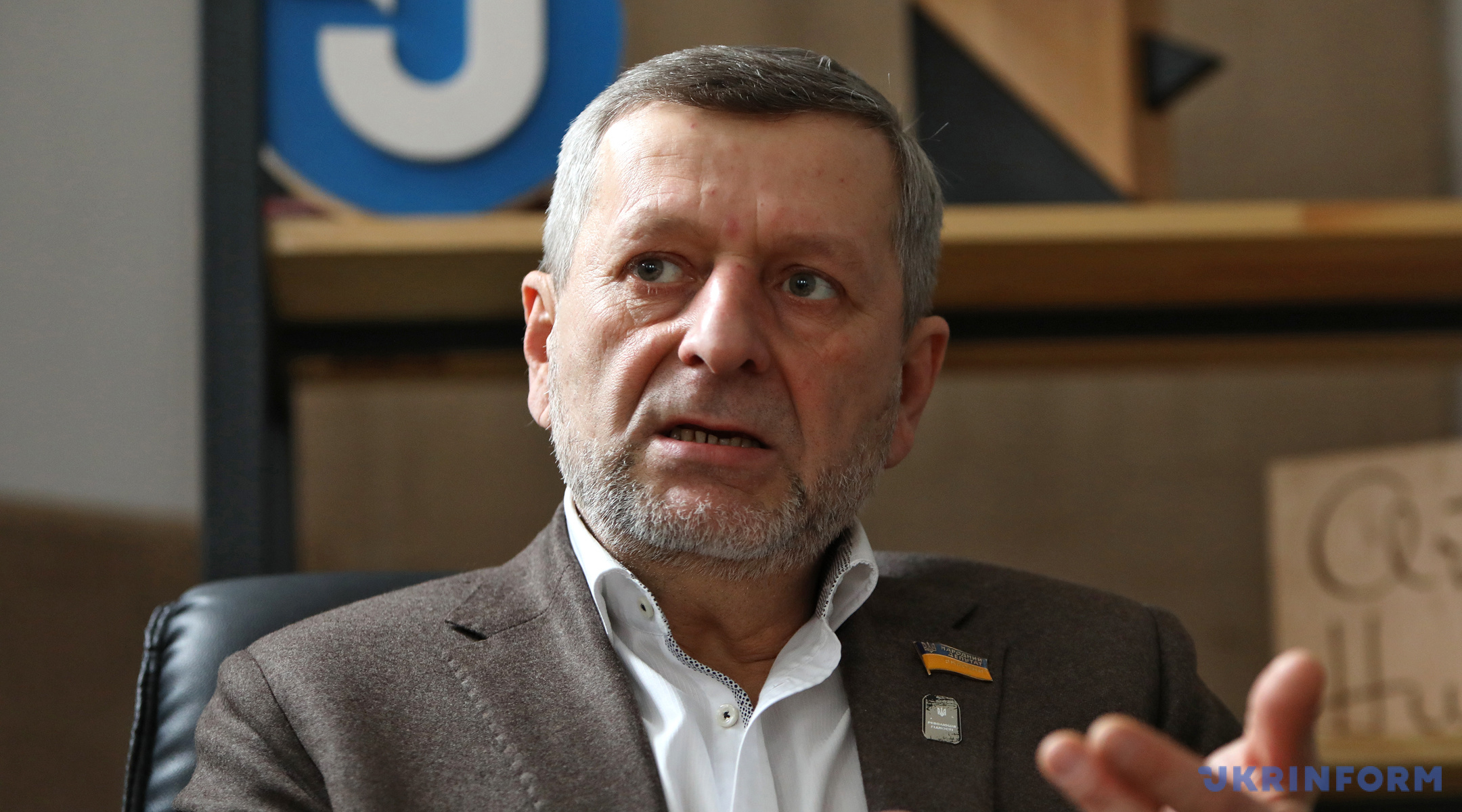
Q: We figured out with weapons. Should the issues of cultural and social integration be included in the Crimea de-occupation strategy?
A: I think one of the dangers that the government demonstrates today is the substitution of important components of victory with humanitarian issues. For example, they call for the provision of pensions to people in occupied territories, water supply to Crimea, the release of political prisoners at any cost. You can ask Balukh, and he will tell you that prison was his choice. And that was my choice. This is our front of the struggle that we waged in prison against the occupier. Of course, the issue of lawyers' support for political prisoners is important, and it needs to be worked out, but it does not belong to strategic ones. This is one of the aspects of the routine work of any state. Another thing is strategically important - for society to mobilize. Then there will be resistance to the occupier and support for this resistance. You can compensate for the costs of lawyers to some extent - this money will not be enough to cover the costs. Another thing is important - a society mobilized to resistance, then the society itself will help families, children, and lawyers. Thus, we have been supporting our political prisoners and their families for five years. Our society in Crimea offers organized resistance to the occupier, and this is one of the main aspects of the struggle for Crimea. Otherwise, it would not have been mentioned in the information space.
Q: Is Crimea mentioned in the information space?
A: Yes, it is. We really see it - both in the information field of Ukraine and in the thoughts of our people in Crimea. The authorities need to strengthen the spirit of the struggle and show solidarity with Crimea through their actions and decisions, but now, unfortunately, there are fewer messages of this kind.
Q: Do you see a different development path for Crimea, for example, under the joint control of several countries, for example, Ukraine, Turkey, Russia? Or, for example, under the control of the UN?
A: No, the future of Crimea is only with Ukraine. Everything else is an illusion - the world today will not reconsider the issue of the status of Crimea, although there should be some forms of influence on the situation. There are many international institutions for this - the OSCE, the UN, the EU - but today they are demonstrating their failure. We provide them with all the necessary information, we press on them, but they are not able to fulfill their main role: to ensure the safety of people in the occupied territories. Their tools do not work today, because the West is faced with a new phase of fascism, transformed from the Soviet authoritarian regime, but in a more bloody and aggressive form. Only Ukraine itself can cope with the task of returning its territories now. It is already strong enough, and the authorities need to further strengthen the positions gained over the previous five years.
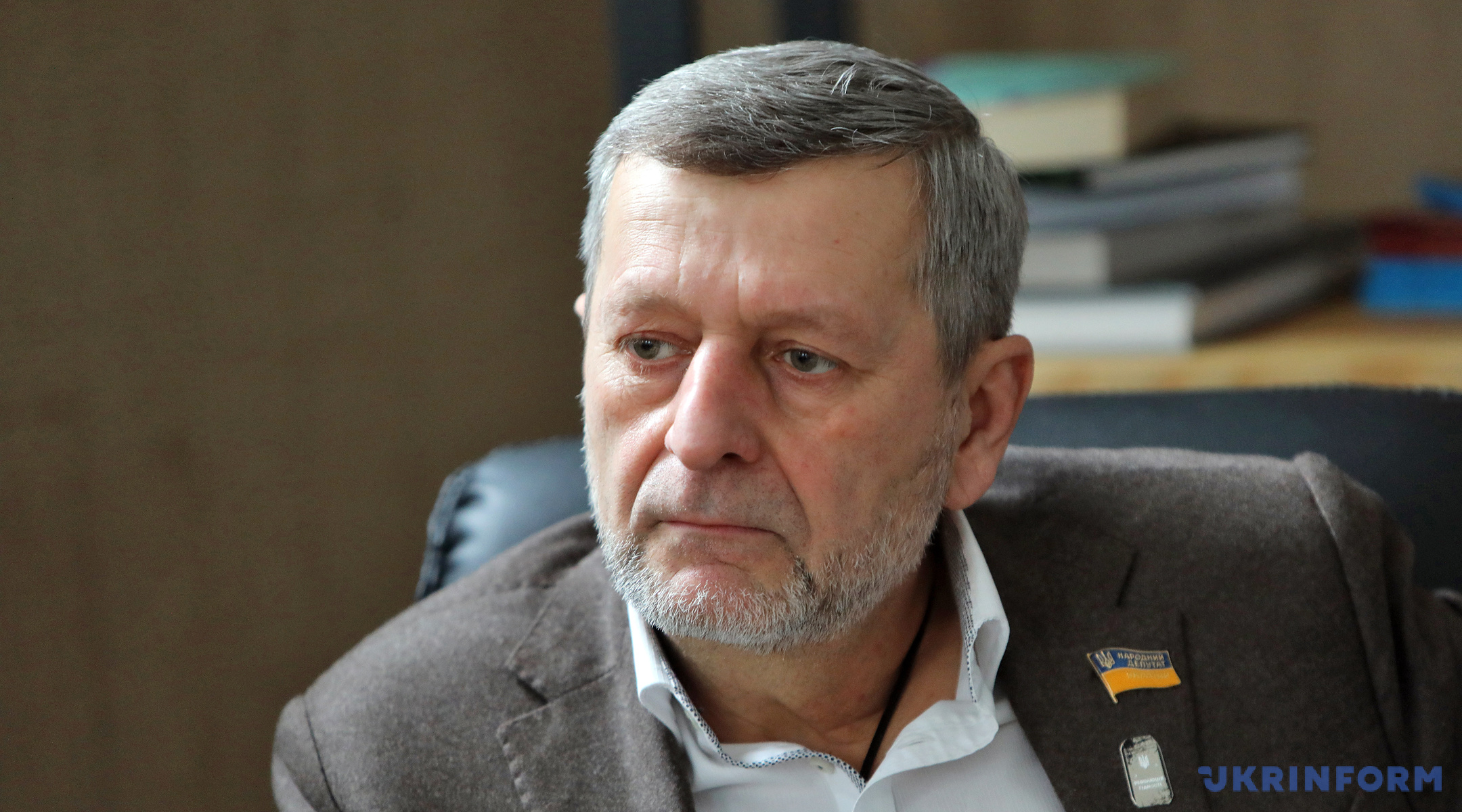
Q: In what areas is Ukraine strong today?
A: The fact that it showed the willingness to continue the fight for its independence. That it was able to build all the pillars of its independence. The latest major achievement is the receipt of the Tomos, religious independence. Now there is an attempt to undermine these pillars. Moreover, they hit both government institutions and public self-awareness. But I am convinced that it is impossible to turn Ukraine towards the Russian colony, because the debate in society today is not on ideological, but on strategic issues. Ukraine will never return to colonial dependence on Russia.
Q: Mustafa Dzhemilev said the other day that in 2014, Crimean Tatars were ready to defend Crimea with weapons in their hands and there were allegedly the lists of 3,000 people who were ready to fight against Russia.
A: I will tell you more. I handed him these lists of 3,000 people in February 2014. And when they searched for these lists in my house during a raid, they even searched for them under the floor. Then Mustafa came from Kyiv. I remember that checkpoints in Perekop and Chonhar were still open, and there was a railway connection with mainland Ukraine. He said that the issue of weapons from mainland Ukraine was being resolved, and in one day we made a list of people who were ready to fight — there were about three thousand of them. I did not make copies of the list, I handed over the original one to Dzhemilev, and he took it to Kyiv, so they didn't find anything during the raid. In those days, by the way, we were actively working on the creation of Crimean Tatar national self-defense units. All men began to guard populated localities and places of compact residence of Crimean Tatars. For example, Bakhchysarai was completely cordoned off by our guys.
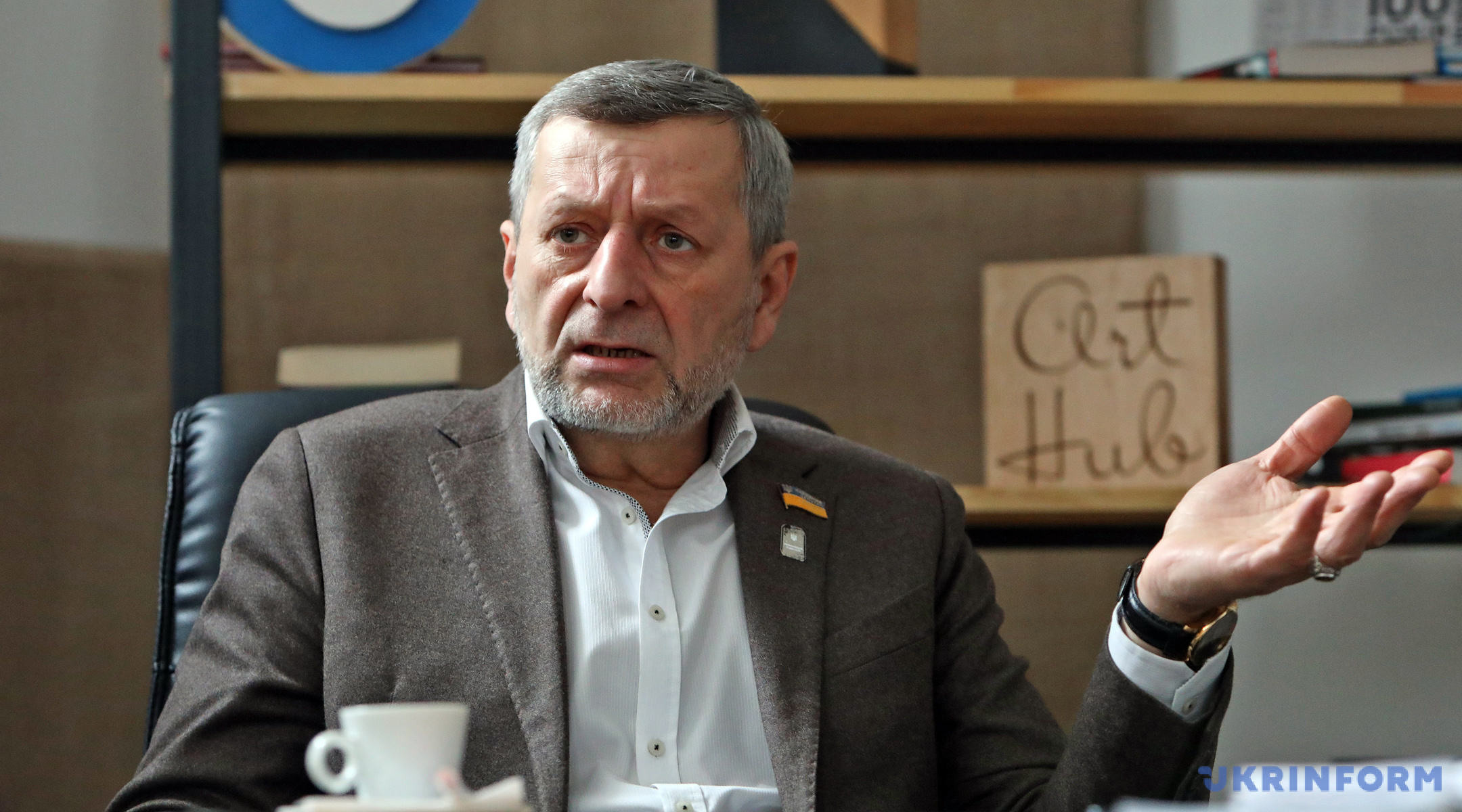
Q: Were the weapons needed to demonstrate strength?
A: No, not for demonstration. It was a clear intention to protect our land. So, if even one military unit had begun armed resistance, tens of thousands would have stood with them in the trenches. The military should have led the resistance, and Crimean Tatars were ready to support them. Another thing is that we had provocations on the part of individual military units, when their representatives proposed going to the unit and opening the hangars with weapons. The commanders of these units were already in collusion with Russian invaders. It was a clear provocation, and we did not resort to that. Because we knew for sure that these commanders of military units and Russian illegal groups in Crimea would say then that they were attacked and their weapons were taken away from them, and we would be declared terrorists. Subsequently, the commanders of units in which we were offered to "take" weapons had already served in the Russian army.
Q: And they still serve there?
A: No, they and people like them now serve on the far borders of Russia, in the "warm" Siberian regions. And it is written in their personal files that they are unreliable and prone to treason.
Q: So if at least one military unit had resisted...
A: Tens of thousands would have stood next to them.
Q: And history would go the other way?
A: For sure. We would not let Russia establish itself. Evidence of that is a rally on February 26. I believe that on that day, the civilian population of Crimea fulfilled its duties. Thanks to our rally, provocative political decisions were not made at a session of the then legitimate Crimean parliament.
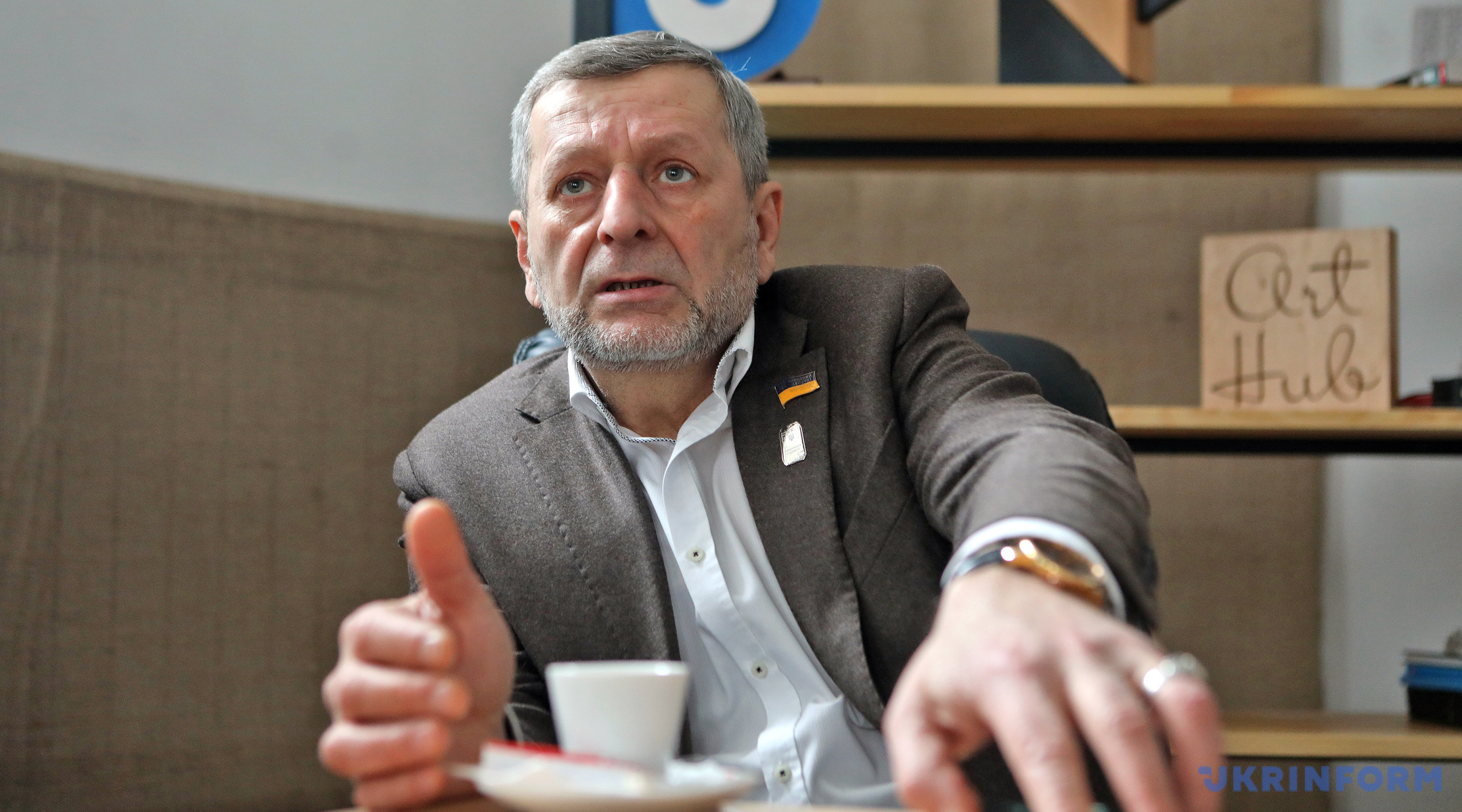
Q: You were at this rally. What did people feel? Did you fear for tomorrow?
Q: I attended hundreds and thousands of such rallies for 25 years. And there was never fear, including that day. People had an inner feeling of anxiety, and with that feeling they got up and came from all over Crimea. When more than a thousand of us arrived to the Crimean Supreme Council from Bakhchysarai, we already heard people shouting "Crimea is Ukraine!" No one wrote slogans or banners for these people, no one forced them or specifically taught them what to say and what to protest against. All of this came from their hearts, because we always lived in Crimea with a feeling of danger from Russia. This feeling of danger never left Crimean Tatars. Therefore, we were afraid of losing Ukraine, and when the parliament session under the pressure of the rally did not take place, we won. We really won a serious battle that day, and its significance should not be underestimated. We stopped the separatists, and then the authorities and special forces had to work.
Q: Who was on the other side of the rally and shouted "Crimea is Russia?"
A: I know for sure from the materials of my "case," and there are 54 volumes there, and no one, of course, revised it — that "ordinary" Crimean residents were represented at the rally, for example, by the Wagner private military company from Sevastopol, the Terek Cossacks, also from Sevastopol, as well as marginal Cossack formations and pro-Russian organizations such as Russian Community of Crimea, Russian Bloc, Russian Unity, which successfully functioned in Crimea due to the inaction of the Crimean government and Kyiv. My lawyer took pictures of two interesting references randomly hiding in the materials of my "case," which confirm the presence of representatives of these entities on the square. We beat them well that day, because they constantly tried to show their strength against us. They had sticks, spray cans with various toxic substances. We responded with force to force and cleared the area from this riffraff in 15 minutes.
Q: What happened the next day?
A: On the night of February 26 to February 27, Russian special forces seized all the administrative buildings of Simferopol. Over the next two days, Russian troops began to enter Crimea mainly through the port of Crimea - the port of Kavkaz, and military airports, including the Belbek airport, began to receive Russian aircraft. And the famous Mamchur simply surrendered all the hangars, airstrip and observation towers, leaving behind only a dining room and barracks.
Q: Do you think they acted not on the instructions given by high-ranking officials?
A: What kind of instructions can be there if it is written in the military charter that you must defend your territory if the enemy encroaches on it! It is necessary to shoot in this case, rather than wait for instructions from the authorities. You didn't swear allegiance to the chief of staff, the general, or the defense minister, you swore allegiance to the people of Ukraine. Case closed. I consider all discussions on this subject to be demagogy.
Q: Why were you accused of organizing the rally on February 26?
A: After Dzhemilev and Chubarov were deported and denied entry to Crimea, they persuaded me for a very long time into working for Russia. They offered everything: fabulous money, opportunities, power. They thought that I could have a different price, a higher one, but I could not explain in a clear way to them that I do not accept the betrayal, first of all, of my principles. For me, the citizenship of Ukraine is not an empty phrase. I demanded at every court session for three years that I not be called a citizen of Russia. I demanded the recusal of judges and investigators. I stated that I did not accept and was not going to accept the citizenship of this country. And they had to write in the verdict that I am a citizen of Ukraine.
Q: Should February 26 be declared the day of Crimea's resistance to Russian occupation?
A: Yes, it should. Together with my colleague Rustem Umerov, we collected the signatures of more than a hundred MPs, including representatives of the mono-majority, for the endorsement of a respective presidential decree. I am sure that February 26 will go down in the history of the state of Ukraine as the Day of Crimea's Resistance to Russian Occupation. Glory to Ukraine!
Zera Ashirova, Kyiv
Photo credit: Yulia Ovsiannikova
